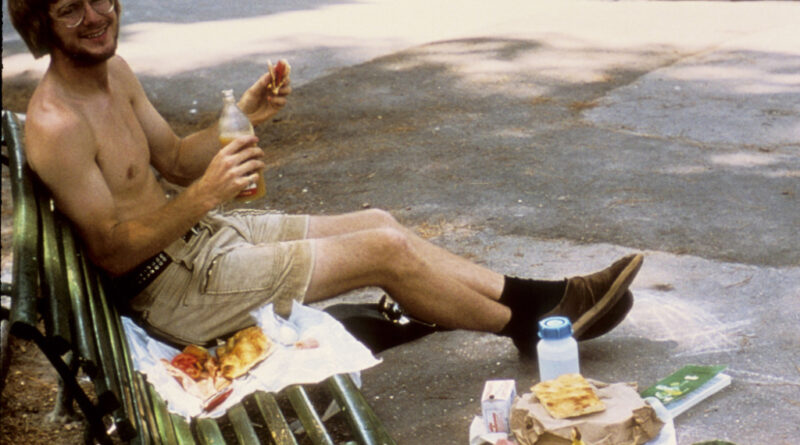Exploring Uncertainty: Review of Kucharski’s ‘Proof: The Uncertain Science of Certainty’
This summer, I delved into Adam Kucharski’s book, ‘Proof: The Uncertain Science of Certainty’, an illuminating exploration of uncertainty and proof across a range of fields, from law and economics to medicine and statecraft. As a mathematician and epidemiologist, Kucharski provides fresh perspectives, liberally sprinkling the narrative with insightful anecdotes, such as Kurt Gödel’s 1947 U.S. citizenship interview where he discussed how a formal fascist regime could exploit inherent contradictions within the U.S. Constitution.
‘The Trip to Echo Spring: On Writers and Drinking’ by Olivia Laing is an intricate tapestry that deftly melds biography, literary criticism, travel narratives, and memoir. Each rereading of this book offers new insights into the interwoven lives of six remarkable writers, who were as notable for their prodigious drinking as they were for their literary prowess. Laing’s skillful storytelling allows us to traverse the spaces of these illustrious authors, bringing into sharp focus their complex relationship with alcohol.
Marking eight decades since the atomic bombings of Hiroshima and Nagasaki, it is perhaps more necessary than ever to revisit ‘Hiroshima’ by John Hersey. Originally presented as a New Yorker article, this book chronicles the experiences of six survivors, recounting the devastating aftermath. A graphic and poignant reminder of the horrific civilian toll, it urges the reader to bear witness to the stark realities of nuclear warfare.
‘Lakota America: A New History of Indigenous Power’ by Pekka Hämäläinen is an enlightening scholarly work that centers the Lakotas as primary players in their own history. Ideal reading for travelers exploring the Upper Midwest and Great Plains, the book offers an in-depth exploration of an often overlooked thread of our national tapestry.
Andreas Malm’s ‘The Destruction of Palestine Is the Destruction of the Earth’ explores a provocative geopolitical link. Malm examines the nexus between the Western world’s destruction of Palestine and its exploitation of the region’s fossil fuels, implicating this extractive relationship in both the genocide of Palestinians and the destruction of our planet.
Rick Steves’ ‘On the Hippie Trail: Istanbul to Kathmandu and the Making of a Travel Writer’ offers a different dimension of the famed traveler. From his early adventures, instances of uncertainty alongside bolder voyagers to explorations of cities like Kabul, Steves’ narrative captures the spontaneous magic of youth, curiosity, and travel, offering an engaging immersion into an earlier era of unfettered global exploration.
Leah Litman’s ‘Lawless: How the Supreme Court Runs on Conservative Grievance, Fringe Theories, and Bad Vibes’ provides an anxious yet critical perspective on recent trends in Supreme Court rulings. We are challenged to consider how we arrived at this place where we anxiously await to see what remains of our constitutional precedents.
In the realm of fiction, ‘The Buried Giant’ by Kazuo Ishiguro offers a contemplative journey into themes of deceit and betrayal on both personal and national levels. The narrative, framed within the Arthurian tradition, deftly intersects fantasy with allegory, resulting in a poignant and melancholic meditation on the human condition.
André Dao’s ‘Anam’ explores the tension between personal politics and inherited legacy. The narrator’s struggles with his leftist political beliefs in light of his family’s associations with an oppressive regime are depicted with unflinching honesty. Dao’s novel raises thought-provoking questions about heritage, personal identity, and political ideology.
‘The Sisters’ by Jonas Hassen Khemiri threads the story of two sisters and their complex family legacy across time and geography. The narrative brilliantly encapsulates the nostalgia, loss, and longing inherent in family bonds, as reflected in the young protagonist’s quest to reconnect with the intimate relationship he once shared with the sisters.
‘Circe’ by Madeline Miller is a captivating reimagining of Greek mythology. Offering an escape from the real world’s darkness, the tale of Circe serves not only as a literary journey, but also as a reminder of the transformative power of storytelling.
‘The Boy and the Dog’ by Seish? Hase is a heartwarming tale of a dog’s journey home following a catastrophic earthquake and tsunami. Whether it’s the resilience of the dog or the comfort he provides to those he encounters, the narrative captures the magic of companionship and the gifts animals bring into our lives.
‘Operation Shylock’ by Philip Roth and ‘Martyr!’ by Kaveh Akbar invite an intriguing comparison of themes—legacy, identity, generational trauma, and unreliable narrators. The imagined dialogue between these two authors or their aliases would make for an engaging and insightful discussion.
‘The Oligarch’s Daughter’ by Joseph Finder offers a thrilling spy narrative set in the modern urban landscape of New York. An innovative spin on classic Cold War intrigue, this novel is a fast-paced page-turner, rich in suspense, drama, and unexpected turns.
And finally, in the world of poetry, ‘The Essential June Jordan’ presents an impassioned exploration of themes ranging from love and politics to motherhood and loss. Jordan’s profound recognition of America’s historical atrocities, both domestically and globally, underscores the power of poetry to bear witness to truth.



